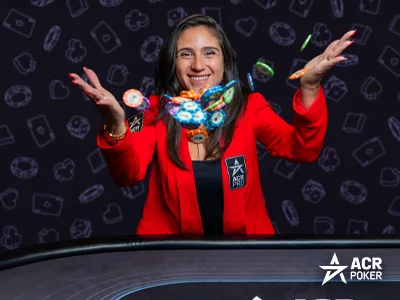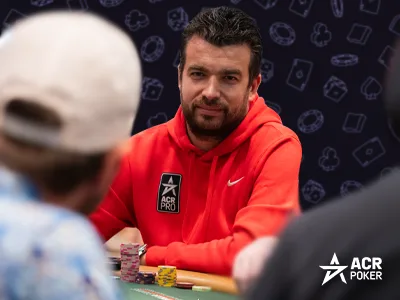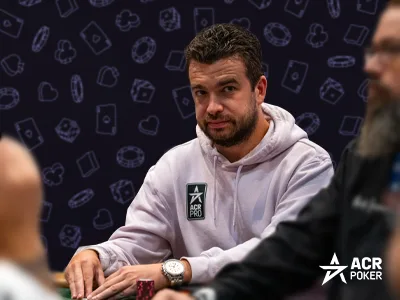Freezeouts reward players who read opponents accurately and apply pressure with precision Freezeout tournaments reward patience and discipline, but they also create clear player tendencies. Tight players are common in these formats because there are no rebuys and every chip matters. Many competitors wait for premium hands and avoid marginal spots. Recognizing this mindset early
Category: Tournament
Securing a Seat vs. Building a Stack in Poker Tournaments
Mastering the balance between securing a seat and building a stack is what separates cashers from contenders Tournament poker forces players to balance survival with ambition. Every decision can shape whether you simply last long enough to cash or build a stack capable of chasing the title. Understanding when to protect your chips and when
Recognizing When to Tighten up After Rebuys End
Tightening up at the right time keeps you ahead of those who fail to recognize the shift Rebuy tournaments create a wild early atmosphere. Players take risks, gamble with marginal hands, and reload when things go wrong. Once the rebuy period ends, however, the dynamic changes quickly. Recognizing that shift is key to protecting your
Reading Opponents’ Intentions in Satellite Tourney Bubble Play
Reading opponents means identifying who wants to ladder into a seat and who is willing to gamble Satellite tournaments create a unique kind of pressure, especially near the bubble. Unlike standard events, the goal is not to accumulate all the chips but simply to secure a seat. That shift changes how players think and how
Reading Opponents’ Bet Sizing for Information in Freezeouts
Reading bet sizing in freezeouts is about combining observation with patience In freezeout tournaments, every decision carries extra weight because there are no second chances. That makes bet sizing one of the clearest windows into an opponent’s thinking. Unlike rebuys, players tend to protect their stacks, which often causes sizing choices to reveal comfort, fear,
Timing Your Poker Tournament Rebuys for Strategic Advantage
The best rebuy timing balances structure, opponents, and personal comfort with risk Rebuy tournaments offer players a rare mix of flexibility and risk. Unlike freezeouts, they allow you to recover from early mistakes or bad beats, but only if you manage your timing wisely. Knowing when to rebuy can shape your entire tournament strategy. The
Strategic Folding to Lock up a Seat in a Satellite Tournament
Track stack sizes, respect the bubble, and avoid unnecessary risks to improve your chances of securing a seat Satellite tournaments create a different kind of pressure, where survival can matter more than chip accumulation. The goal is simple: finish with enough chips to earn a seat, not to win every pot. Strategic folding becomes a
Adapting to Tournament Table Dynamics Post-Rebuy Period
Adjust aggression and read table behavior to set yourself up for deeper runs and stronger finishes The end of the rebuy period marks a clear shift in tournament poker. Chips gain real value, mistakes become harder to recover from, and player behavior often changes quickly. Recognizing this transition is essential for staying competitive as the
Recognizing and Countering Common Mistakes in Freezeouts
Over time, cleaner decisions and sharper adjustments turn freezeouts from a grind into consistent deep runs Freezeout tournaments reward discipline, patience, and clear decision-making. With no rebuys or add-ons available, every chip matters from the first hand to the final table. Recognizing common mistakes early can protect your stack and improve long-term results in this
Maximizing Value From Add-on Opportunities in Rebuy Tournaments
Maximizing value from add-ons is about preparation, not impulse Rebuy tournaments create unique strategic decisions that do not exist in freezeout formats. Add-ons, in particular, can offer strong value when used correctly. Understanding when and why to take them can significantly improve long-term tournament results. An add-on usually provides extra chips for a fixed cost
Strategic Use of Min-Raises in Satellites
A clinical approach to pot control ensures you don unnecessarily risk your tournament life In satellite poker tournaments, the primary strategic objective is survival rather than chip accumulation. Because the payout structure is flat—awarding identical prizes to all qualifiers regardless of their final stack size—players must adopt a risk-averse approach that differs significantly from standard
Leveraging Table Position for Maximum Value in Freezeouts
Ultimately, playing in position reduces your risk and increases your information In a poker freezeout, where you only get one chance to win, understanding table position is your most powerful asset. Position refers to where you sit relative to the dealer button, and it determines when you act during a hand. Acting last is a












